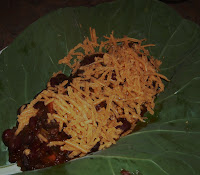Epistemology. It was a few years ago, a couple of weeks into my first winter semester back in college, when my English Comp II teacher said that word. Here I am sitting in English and he is speaking Greek AND expecting me to understand it. According to the Standford Encyclopedia of Philosophy it is, "the study of knowledge and justified belief".
Epistemology is what this blog is about. I am in search of understanding. Are my belief's about health, wellness, and being a decent person on this planet right? -- is what I think, right, wrong, right for right now, completely wrong? Are they imposing on other's freedom's, happiness? Or contributing to my own (or other's) demise, ability to get good employment, etc? Is what I believe (thus motivating my actions) good and allowing me to better myself and enable those around me to do well also? Because one of my foundational beliefs is we are all connected in some way or form. It maybe not be obvious right now. But we live on one planet, all breath air and probably affect each other more than we could, or world, or care to acknowledge.
I appreciate the reminder this almost 20 minute "talk" gave me. I have had discussions, like I typical enjoy to do, with my peers about current affairs and our perspective views about them. But one my thoughts might have been wrong. Maybe the U.S. population is living longer. To me, with all of the disease, what I see happening in my community, and in my own family, it is a hard to see that as reality. But according to the U.S. Census we are living longer. According to this paper we are not. Huh. I don't know. Honestly too tired to put any more energy towards it, or investigate which is actually right. Maybe they both are. Because we are all, in someway, living in multiple realities - in our own individual perspectives and experiences giving our eyes its own individual perspective of reality.
I appreciate the reminder this almost 20 minute "talk" gave me. I have had discussions, like I typical enjoy to do, with my peers about current affairs and our perspective views about them. But one my thoughts might have been wrong. Maybe the U.S. population is living longer. To me, with all of the disease, what I see happening in my community, and in my own family, it is a hard to see that as reality. But according to the U.S. Census we are living longer. According to this paper we are not. Huh. I don't know. Honestly too tired to put any more energy towards it, or investigate which is actually right. Maybe they both are. Because we are all, in someway, living in multiple realities - in our own individual perspectives and experiences giving our eyes its own individual perspective of reality.






























